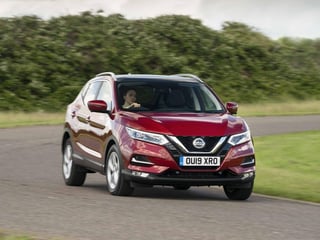Ford Kuga review
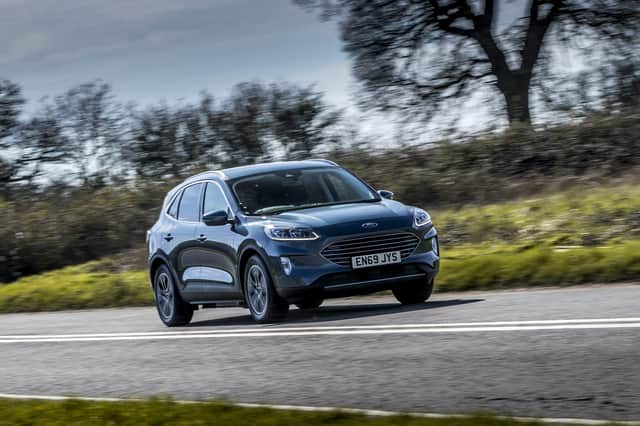

Way back in the mists of time when God was a boy and I was a fresh-faced cub reporter, Titanium trim was about as fancy as Fords got.
Along with the famous Ghia badge, Titanium sat at the top of the tree - a sign that here was a Ford packed with the latest technology and luxury features. In those days that meant parking sensors, CD multichangers, auto air con and cruise control.
Advertisement
Hide AdAdvertisement
Hide AdFast forward a “few” years and things have changed. I’m not so fresh-faced, CDs aren’t a thing any more and even city cars have air con and cruise control.
Furthermore, Titanium is no longer the top tier for Fords, in fact, when it comes to the tested Kuga SUV, it’s one step up from the bottom-rung Zetec.
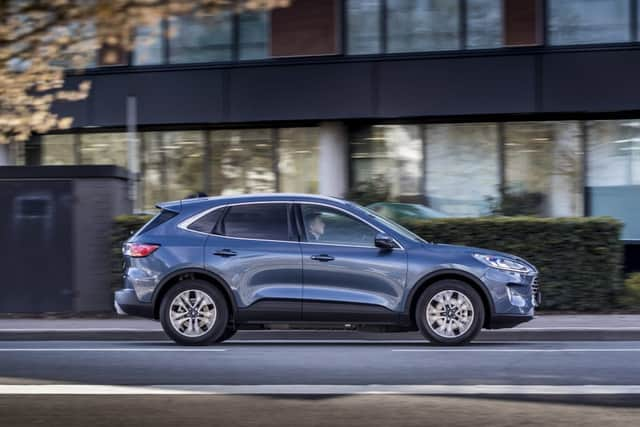

Ford Kuga Titanium mHEV
- Price: £29,375 (£30,975 as tested)
- Engine: 2.0-litre, four-cylinder diesel with 48V BISG
- Power: 148bhp
- Torque: 273lb ft
- Transmission: Six-speed manual
- Top speed: 121mph
- 0-62mph: 9.6 seconds
- Economy: 47.9-62.8mpg
- CO2 emissions: 135g/km
That’s not to say that it feels low spec even by today’s lofty standards. In fact, it’s still a massively well equipped car with leather seats, an eight-inch smartphone-connected media screen and a solid suite of driver aids. The LED headlights are auto-dimming, there’s dual-zone climate control, wireless phone charging, ambient cabin lighting and “premium” B&O sound system.
I admit I noticed the omission of heated seats from that list during an icy week with the Kuga but Ford’s marvellous Quickclear heated windscreen came into its own, speeding up the defrosting process and saving my fingers from the icy pain of scraping the glass.
Advertisement
Hide AdAdvertisement
Hide AdOur test car was relatively low on options but the £1,000 Driver’s Assistance Pack added front and rear cameras, adaptive cruise control, blind spot warning and active park assist to the standard lane keep assist, forward collision warning, autonomous emergency braking and post-collision braking.
So mid-range it may be but there’s not much you’d miss in day-to-day driving.
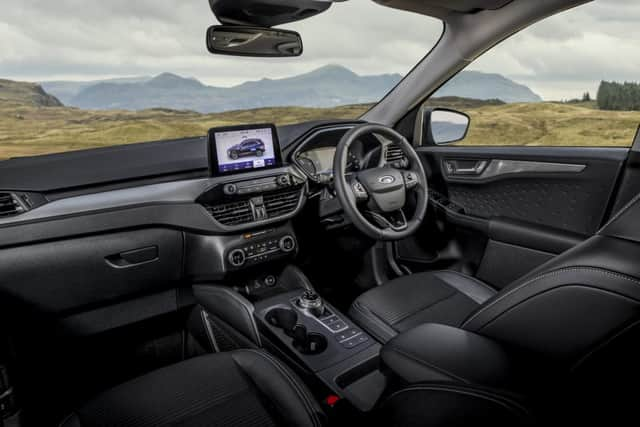

This Kuga is the third generation of Ford’s popular family SUV, built on a new platform to offer improved safety, reduced weight and improved performance through better aerodynamics and hybrid drivetrains - more on them later.
It’s hard to claim that the new looks are an improvement. The latest Kuga has carried on Ford’s apparent love for aping Aston Martin design. If you squint you’ll see hints of the DBX on the longer, more sloping front end but it’s not an improvement over the old one, even if it is better for aerodynamics and pedestrian safety. The rest of the body is a subtler, slightly sleeker advance on the old model - longer than before and on a stiffer chassis for improved crash safety and handling.
Advertisement
Hide AdAdvertisement
Hide AdAs before, the Kuga showcases the wizardry of Ford’s chassis engineers. It’s not a sports car but it’s more confident and controlled feeling than rival cars, with the possible exception of the Seat Ateca, and it hustles rather than wallows along the road. It still rides well, too. This was possibly helped by the tall sidewall on our “low spec” car’s 18-inch alloys but overall it’s very composed and ideal for everyday family use.
That usability extends inside, where the longer wheelbase allows for more passenger room than before. There is generous space front and rear, with good legroom even behind the tallest of drivers and plenty of head and shoulder space. A decent 456-litre boot should be big enough for most families’ needs as well, and there are plenty of handy cubbies in the cabin for phones, drinks etc.
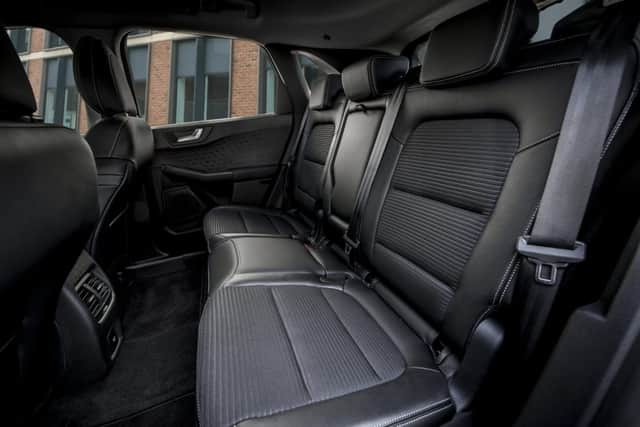

Ford has put a lot of emphasis on the range of drivetrains the new Kuga’s platform can accommodate. As well as regular petrol and diesel options, the Kuga is Ford’s first model to offer mild, full and plug-in hybrid variants. Sales of the PHEV have stopped while Ford figures out why a handful of examples have caught fire, so tested here is the 2.0-litre EcoBlue diesel mild hybrid. This uses a 48V integrated starter/generator to recover braking energy and offer electric torque assistance to reduce demand on the engine to aid economy.
The engine is a decent performer in the same way as pretty much all 148bhp diesel four-pots of recent years. It’s a touch noisy at times but generally pretty smooth and capable, with plenty of torque offering strong linear pull. Apart from the slight tug on the brakes, you’ll never be aware of the hybrid system in operation but it helped contribute to an on-test economy of 52mpg - pretty good for a large SUV.
That sums up the Kuga - a pretty good large SUV. For the class, the Kuga is spacious, comfortable, good to drive and economical. And even in lowly Titanium spec it’s well equipped for the money.
